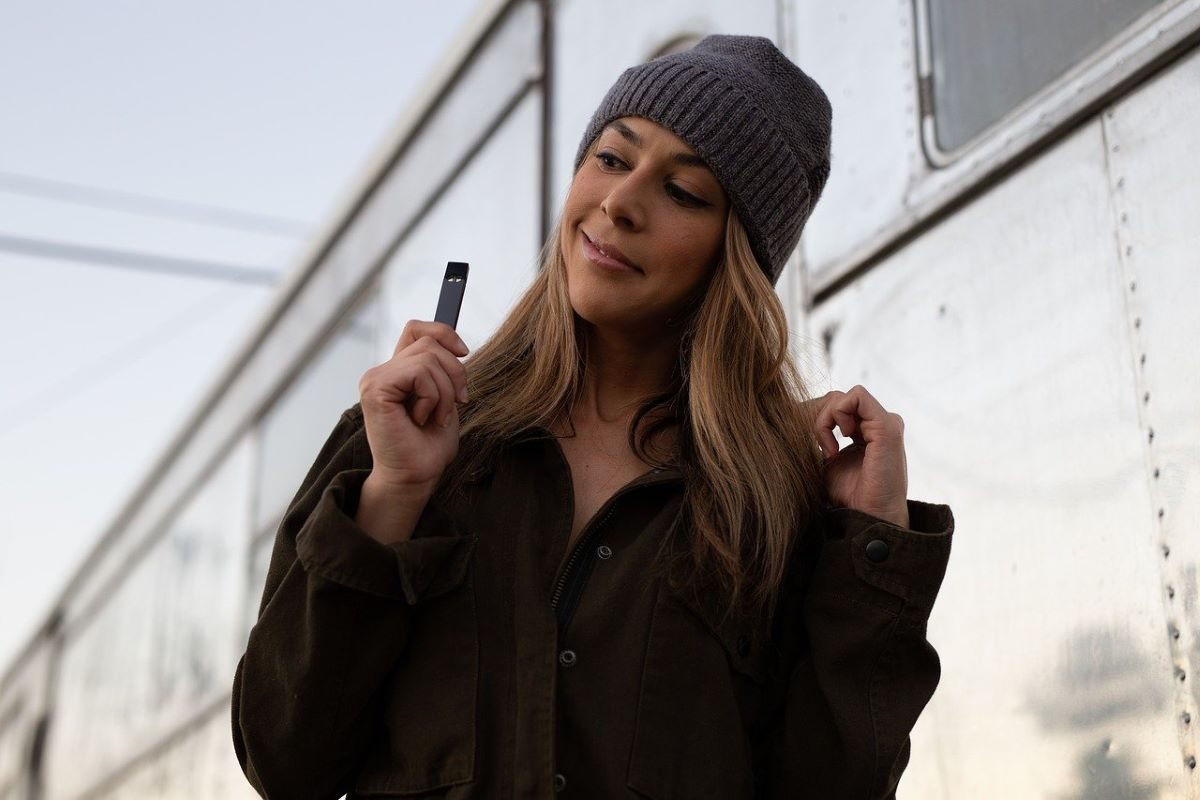Adolescence isn’t just a time of awkward growth, confusing feelings, and unstoppable urges to try new things, it’s also the time when your kids will feel the influences of peer pressure. This is the time when your kids are going to start experimenting with things like vaping. Unfortunately, teens as young as 13 are trying vaping at least once, while some tweens are already into vaping. If you’ve discovered your teen is vaping and you’re not sure what to do, it’s easy to worry and immediately think of ways to punish your child, even though it’s hard to know what an appropriate punishment for vaping is.
Teen vaping has spiraled out of control with middle and high schools dealing with vaping issues in restrooms and elsewhere on school grounds. As parents, we need to be concerned about teen vaping because of the chemicals it exposes kids to, as well as the likelihood of nicotine addiction. Then, there’s the rise in lung injury related to an illness associated with vaping. It’s important teens understand the risks of vaping, which is where finding an appropriate punishment comes in.
How to find an appropriate punishment for vaping

Your teen is no longer a baby. As hard as it is to accept, they’ll make their own decisions no matter how hard you might try to counsel them. Teens are still in your care until they reach adulthood or move away. While most parents will put their foot down and staunchly exclaim that it’s their house and their rules, this approach is rarely effective. Read on to discover ways to discipline your teen without alienating them altogether.
Always offer a safe space for dialogue
Instead of approaching your teen with scare tactics and a furious voice, keep calm. You want to establish an honest, open dialogue that will lead to solutions and not just severe punishment. Ask lots of questions and listen to their answers. Then, respond thoughtfully. Instead of trying to “get through” to them, talk about the risks of vaping openly.
Give honest information without exaggerating the facts
Once you’ve established a safe space physically and emotionally for conversation, give it to them straight. Tell your teen why vaping is harmful to their health without resorting to the typical “smoking kills” campaign. Teens know the health effects of smoking conventional cigarettes, though they might not be aware of the full effects of e-cigarettes. Lots of teens mistakenly think vaping is a safer alternative to smoking.
Explain why nicotine addiction is dangerous
Talk about how smoking can lead to other equally addictive habits, like drinking or dangerous substances. If you want to take it a step further, talk to your teen about why e-cigarettes are so popular with their peers.
In other words, they’re specifically designed to smell and taste good, to be very discreet, and to make them look cool. Tell them why this marketing ploy is dangerous and why they shouldn’t fall for it. If you need more information on e-cigarettes and some very relevant statistics about teen vaping, check out this article by the Child Mind Institute.
Set clear boundaries
As much as teens think they’re ready for adulthood, they aren’t. While parenting isn’t the same as when they were younger, it’s just as important to have structure as kids get older. The tween and teen years are tough, which is why having structure and setting clear boundaries is vital. Make sure your teenager understands vaping is just as unacceptable as smoking.
Avoid setting inappropriate punishments
Whenever teens mess up, it’s important to keep the consequences appropriate to the action. For example, if they miss curfew, they can’t go out for the next week, or their curfew is now an hour earlier for the next month. An inappropriate response to a missed curfew might be taking away their cell phone for two months or cutting off their internet access for good.
Dole out appropriate penalties
The appropriate punishment for vaping is a little more tricky than missing a curfew. You don’t want to freak out and stomp the e-cigarette in front of them. Nor do you want to sneak into their room when they’re away and just hide the thing forever. If they only vape occasionally or have only used it once, take away the vape before it becomes a bigger problem.
Take away some privileges temporarily, like access to the car if they drive, having friends over, going over to friends’ houses, or getting to use their laptop for fun. If you’ve discovered or if they’ve confessed that they have a nicotine addiction, then the way out might look a little different.
Find out why they’re vaping and help them find healthier alternatives or treatment

For teens who have developed a nicotine addiction, getting professional help is the best step. As with cigarettes, quitting cold turkey might be a too-aggressive approach that can lead to some unsavory side effects. Help your teen curb their use slowly until they’re no longer dependent on it.
Get them help if needed
If your teen is vaping for a specific reason, such as masking depression, releasing stress, or escaping abusive situations, it’s also time to get professional help. Comfort your teen and tell them they have other choices besides vaping. Seek out trustworthy teen therapists in your area and make an appointment for them.
Find alternative activities for them
Discover and offer recreational activities for your teen. Enroll them in sports classes, dance or music lessons, art classes, volunteer work, and other alternatives to vaping. These are not only productive, but they’ll also eliminate the need for vaping if your teen is smoking to deal with boredom.
Know who your teen hangs out with
Your kids are teenagers, so you’re not scheduling play dates for them, but it’s still important to know who their friends are. The teens your child spends time with will greatly influence whether they choose to experiment with vaping. It won’t be easy because teens make it hard, but try to keep a handle on the kids your kid has in their friend group.
Monitor their actions but let them have their space during their healing period. Follow up regularly whether it’s through casual conversation or designated well-being check-ins. Most importantly, let them know you’re there to talk and help if they need it.
How to tell if your child is vaping

Are you concerned your teen is vaping but unsure if your suspicions are founded or not? A few things to keep an eye out for are online purchases that you may be uncertain of the contents, or your child using your credit card or bank card for frequent purchases at gas stations or smaller stores.
Experts also suggest paying attention to any different smells. Many vapes are flavored so if you smell bubble gum when no one is chewing any gum, that could be from a vape pen. Partnership to End Addiction also notes that frequent vape use can cause a dry mouth and nose, resulting in increased thirst or nosebleeds.
You may also notice a change in their behavior, including increased anxiety, irritability, difficulty concentrating, and loss of appetite. If you’re noticing any of these changes around your teen, you may want to have an open conversation with them and let them know your suspicions.
Practice what you preach

The reality is if a parent in the house is a smoker or vaper, there is an increased chance their child will be, too. A recent study of Irish teenagers showed that adolescents with parents who smoke are 55% more likely to try vaping and 51% more likely to have tried smoking. Another study found that adolescents who had parents who smoked were more likely to try smoking and vaping at a younger age and become addicted at a younger age, noting, “Adolescents with nicotine-dependent parents are susceptible to more intense smoking patterns and this risk increases with longer duration of exposure.” Quitting smoking can be difficult, but it can be crucial in setting a healthier example for your teen.
Whether it’s peer pressure, curiosity, emotional problems, or boredom, teen vaping is alarming. Your teen is trying to exert independence by making their own choices, but you can guide them toward a healthier path. Before giving them a harsh punishment, make sure you talk to them about why they’re vaping and how often. Give them the low-down on the negative effects of vaping, but don’t scare them into throwing it away. Always give them appropriate consequences and be consistent with your approach. Don’t hesitate to seek professional help.




